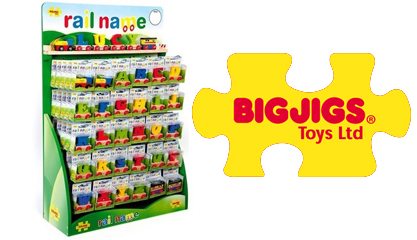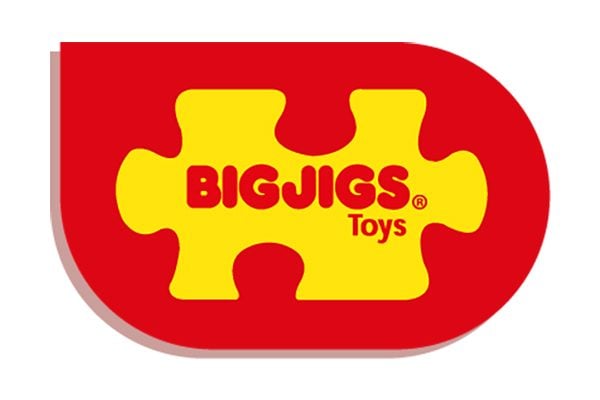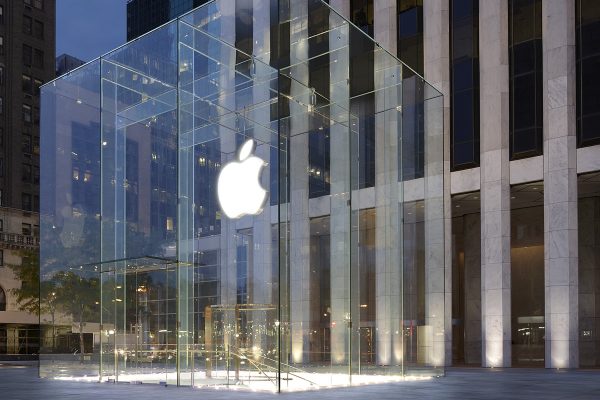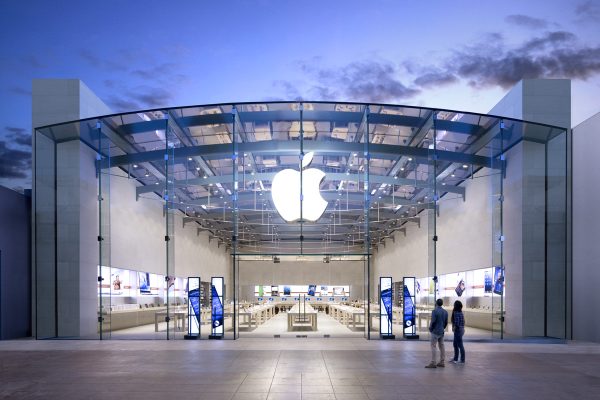 Following our post about toy manufacturers cutting supply to ecommerce merchants, George from BigJigs has been in touch. Whilst we’re not wholly in favour of everything he had to say, we think it only fair that he should have a chance to respond to our thoughts.
Following our post about toy manufacturers cutting supply to ecommerce merchants, George from BigJigs has been in touch. Whilst we’re not wholly in favour of everything he had to say, we think it only fair that he should have a chance to respond to our thoughts.
George also had some interesting things to add, such as every sale on the BigJigs consumer website is actually fulfilled by their bricks and mortar retailers. The order is offered to the retailer closest to where the customer lives. That might be somewhat unusual for the Internet, but it does mean that a customer receives their order, not from some big conglomerate, but from a local, often in independent toy shop. It’s one of the ways BigJigs aim to help their bricks and mortar customers.
Some of what George has to say won’t be welcome, especially for those retailers who’ve just had their accounts closed. Read what BigJigs had to say though, we’re pretty sure they won’t be the last manufacturer to start rationalising the retailers they choose to supply.
Here’s what George had to say
I have just been alerted to your article regarding ‘Toy manufacturers cut supply to marketplaces’. I would just like to point out a few mistakes in your post.
Since the company formed 27 years ago, Bigjigs Toys have always championed and supported independent toy retailers who have bricks and mortar shops. The vast majority of our business is conducted through these high street retailers and therefore we want to continue to support them. In an age where austerity meets a shift in purchasing behaviours, many of our high street retailers have found trading conditions difficult, partly due to consumers being able to find the same products but cheaper on third party selling sites. Not only does this damage the high street and the independent toy industry, but it also devalues our brand. As our brand continues to grow, if we continue to allow third party retailers to sell at such low prices and not portray our brand correctly then consumers will perceive our products to be of lower value and of lesser quality than they actually are. We have taken the decision to safeguard our market leading brand which has absorbed substantial amounts of money in design and development over the years.
As purchasing behaviour evolves, it is important for brands to be highly visible and readily available at the touch of a button. To ensure that our brand presence is maintained, we will be offering our products for sale ourselves but at the full suggested recommended retail price. There is no getting around the fact that consumers use these 3rd party selling websites, and so it’s important for our brand to be present on these sites but in a way that supports all involved with Bigjigs Toys. We are never going to be able to make people buy everything in store, some people simply choose to by online becuase they are too far from a toy shop or do not have time to go into store, this we cannot stop. What we can stop is the process where by a retailer spends money getting customers into their store, only for that customer to then search on a 3rd party site for the product and find it cheaper. In the first 3 weeks of our new policy we have seen a great response from indies up and down the country, some have seen more sales in store and some have seen more sales on their own websites. This is just what we hoped to see, hopefully in the lead up to Christmas as more customers have left these since when their stock has sold through the effect will be even better.
So if you had done a little research then you would notice that our consumers can still purchase from the likes of Amazon and eBay. They can also purchase off our consumer facing website which is fulfilled by our high street retailers.
If you would like to discuss this matter please do not hesitate to call. I look forward to you amending the article accordingly.
Regards,
George










22 Responses
I have to say well done to George for taking the time to detail the reasons. I think he has a very valid point to be honest. Is on-line retail just about who is the cheapest ? I see it daily where competitors undercut prices by £1 to be at the top of lists when consumers search low to high.
There has to be some protection for a brand, for retailers who have commercial premesis and for retail in general. I am a big believer that to sell on-line you have to show commitment to stock and knowledge of the product range – a showroom or high street store would give you this.
The word “evolve” is used more than once, and I think that about sums it up. Evolution always brings winners and losers, and as the world of ecommerce matures the gaps will inevitably open up. This seems to be a interesting compromise between on and off line, which sounds on the whole to be a good thing; omni-channel in its purest form.
A nice bold move from Bigjigs, its only fair for them to have their say.
However I still believe the action that they have taken is unnecessary.
George says –
“If we continue to allow third party retailers to sell at such low prices and not portray our brand correctly then consumers will perceive our products to be of lower value….” etc.
This is where its wrong – you are labeling ALL third party retailers as price cutters and not representing your brand correctly. Whilst I fully understand there are many sellers who bung a product on with eBay mobile to make a dollar, there are also many sellers who sell fairly and take a lot of pride with listings, service etc. This policy has penalized these sellers and done them out of business – these sellers will have the biggest chip on their shoulder and could think your move was to cut the middle man. I doubt they’ll continue to make efforts in store or via their websites.
To strengthen my case I have had a quick Terapeak and come up with a few numbers. I have taken the 30days of December 2012:
50% of New Bigjigs sales were from the top 5 sellers, 75% from the top 10 and >90% from the top 20 sellers.
I am a random eBay seller and if you give me another 30mins I will even identify the brands who were causing the trouble for you – were you not able to do the same and approach these troublesome sellers – contact info is plastered all over the listings?!
Whilst I fully understand you are not able to enforce price rules on sellers you are 100% in control of the supply. So you are well within your right to have a quiet word with any seller you didn’t agree with and if necessary stop supplying them.
I think this would have been the correct way to deal with it (and what other suppliers do constantly). You would have saved a lot of time trying to enforce the policy and you would have many accounts still selling and promoting your brand.
One final point – I also believe that these policies are pointless unless you fully enforce them. Since you brought in the policy there has been several thousand £’s sold through the same sellers – having given them 6 months to action your request I’d have made a clear statement and removed any listings that didn’t comply immediately.
are you selling a Brand or a product?
I think it is good and fair response from the company. There are a lot of companies out there that do the same thing and for once it’s a supply trying to help smaller companies…it’s good to see.
I find it interesting that George states that purchasers might be too far away from a High Street Retailer in one place in his statement. Yet the order online from their website will be met by the closest of their existing High Street Retailers.
I am not an expert on the location of Toy Shops but in regard to Book Shops it is not unusual to find Bookshop Free Towns and indeed areas with several towns without a Bookshop between them. Does this happen in Toyshops?
However if there is a convenient Toyshop and the customer just does not know them I suppose their policy might increase the customer base of the Toyshop. But what if the nearest Toyshop is many miles away in a town the customer rarely if ever visits. Will such a policy cause the customer to make special journeys to that town to visit the Toyshop.
I still think that this policy is likely to bring in a competitor manufacturer who is happy to sell to ecommerce outlets and doesn’t mind them discounting.
This is simply old fashioned retail price maintenance dressed up in new clothes for the online age.
The idea that online only etailers will have to start opening shops to satisfy some suppliers is simply laughable.
Only very specialist niche markets and suppliers can even consider this approach.
However we expect to see more of this as the high street boys seek to reduce and/or limit competition.
I think it is a bit more than price maintenance but it is certainly protectionist. But is it unfair or is it sensible?
Interesting to read the comments. We are an integrated High Street and Online Shop and have been urging Bigjigs as well as our other suppliers to do something like this for some time.
Online Brand Management is now a crucial part of a marketing strategy. In the same way that it made no sense to have a product in every shop on a High Street, it also makes no sense to have a product all over the place on the Internet. All you get is destructive price competition and brand devaluation – if genuine Rolex’s were discounted all over the place, do you think anyone would value them any more?
The Amazon Marketplace is a good example of the problem where there is a rush to the bottom with an Amazon computer chasing you down – and if you doubt that try selling Brio on Amazon…
Middlemen have to justify their profit by adding value and the same applies to online retailers. Up to now, this value often was just that of making the product available online, and it really should be no surprise when the original supplier decides to sell direct and take the profit for themselves. This is just what has happened with Bigjigs and the Amazon Marketplace, with the added benefit of price stability.
This leaves online sellers with their own websites, and High Street shops, and I suspect that the former are approaching their sell by date. After all what value are they adding? Competing on price with your supplier is not really the best survival strategy, and no matter how well you design your website or how quickly you dispatch your goods, price is really what counts when differentiating online shops.
On the other hand, as long as High Street shops continue to add value by displaying, advising customers and supporting products, they will be valued by suppliers who will want them to survive.
However, the future of the High Street is undermined by customer’s “showrooming” and then buying cheaper online. If suppliers are to support the High Street then they have to find a way of stopping the practice.
Here you see the double benefit of the Bigjigs strategy: take the online profit for themselves whilst allowing High Street shops to survive and to continue to market and support their products, by giving the necessary price stability and ensuring that “showrooming” has no benefit. Others are already following Bigjigs and this is the future for online sales.
if its worth the money you dont need to manipulate how its sold.
Cambridge_Blue said “It is all about making more money out of consumers and reducing competition in the channel.” I couldn’t agree more. Isn’t making more money out of consumers the purpose of any business? How to make more money out of consumers is the subject of any marketing or sales seminar, and avoiding destructive competition, especially between sellers of the same brand, is an important part of any marketing strategy.
If the brand owner decides that their best way to maximising profit is to maintain sufficient margins to ensure their products can be sold both online and in the High Street then that is their privilege. It is also up to the customer to decide whether they want to pay the price. The next few years will be interesting as we will see which brands survive: those which allow anyone to trade in the their products, or those that actively manage the available sales channels.